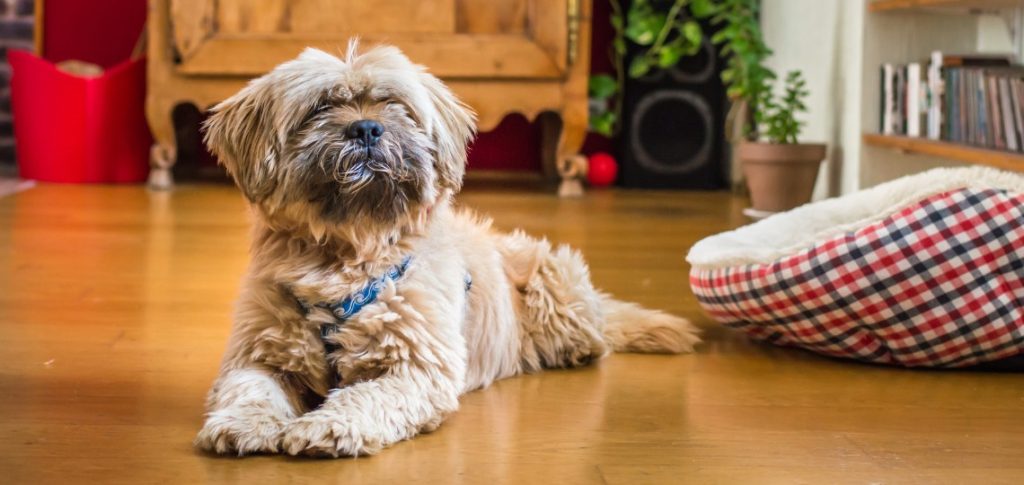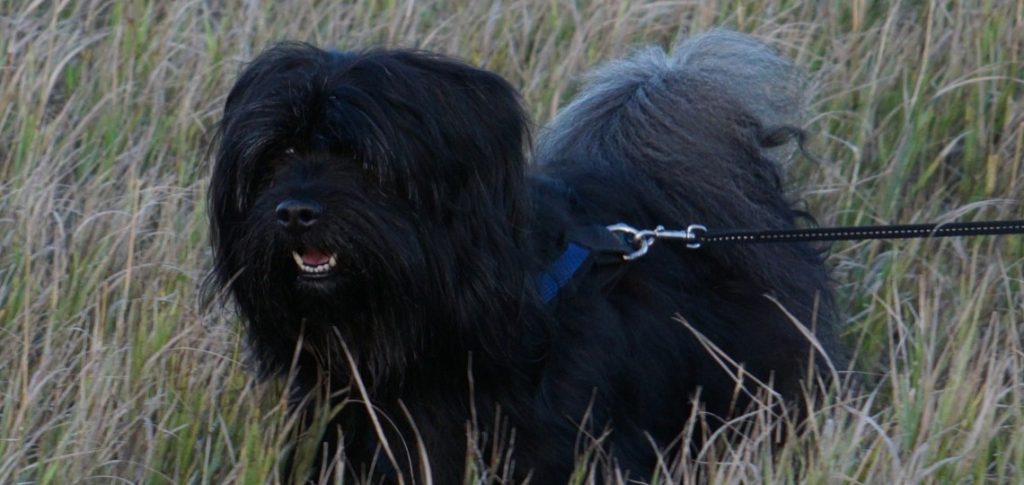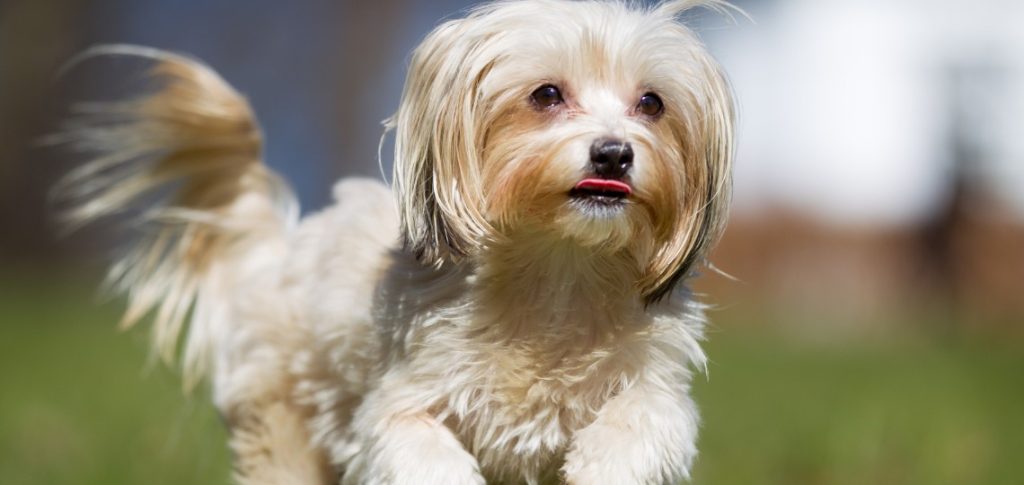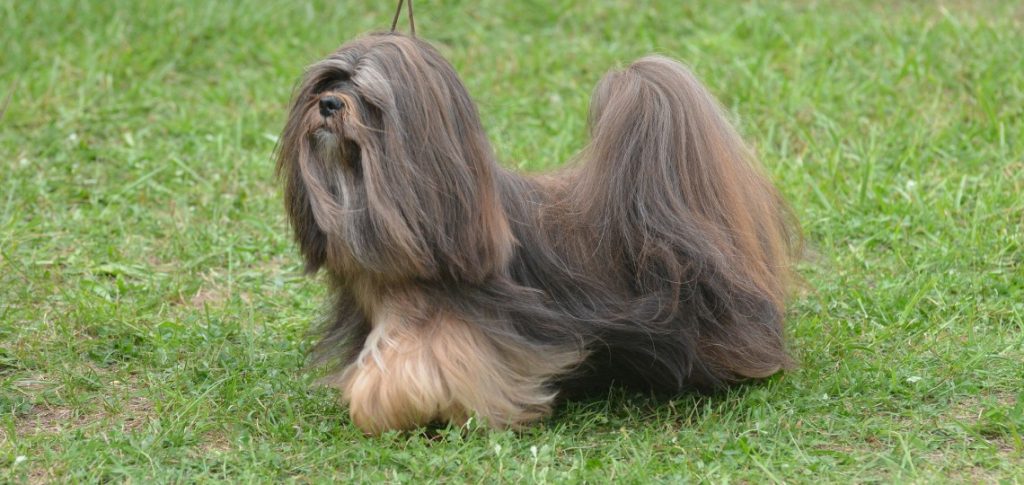Are Havanese Dogs Good Apartment Dogs?
If you have an apartment and are hoping to get a dog, there are definitely a few things that you need to think about. After all, not all dogs are well suited for an apartment, especially if they are a larger breed.
You will want to be sure that, if you do get a dog or a puppy, the breed you choose will be able to thrive in the environment that you are able to provide. This is not only for the dog’s benefit but for yours as well!
The Havanese, for instance, is a breed of dog, known for its affectionate and playful attitude, as well as its attachment to its owners. Havanese dogs can be good apartment dogs, as long as you are aware of a few variables.

Factors to Consider
There are certain factors to take into account when considering whether or not a dog will be a good apartment dog. Take a look below to see where these factors come into account for the Havanese and the eligibility of this breed as an apartment dog.

Exercise
The energy level and the exercise requirements of a dog are both important to consider. This is because, if a dog is cooped up in the apartment and does not get enough exercise– or possesses too much pent-up energy– they can become disruptive and destructive. The Havanese is a small breed that does not require a large amount of exercise.
They do have a playful disposition but do not need to be taken on runs or hikes for miles as some other breeds require. Playing with a toy inside or a brisk walk around the neighbourhood or apartment complex should be satisfactory for a Havanese. This light exercise should prevent them from being poor apartment mates and becoming restless or destructive!
Further Reading – How Far Can a Havanese Walk?

Size
The size of a breed of dog is important for a couple of reasons. Many apartment complexes have size restrictions for pets, and as a general rule, larger breeds do not do well in smaller spaces, simply because they take up and require more space!
Havanese are a small breed, so they do not take up much space and should be within the size or weight constraints of your apartment complex. An apartment should be plenty of space for a Havanese to roam, play, and explore.

Noise
Of course, when you have an apartment, you have to be more considerate of your neighbours.
Some apartment complexes and condos are soundproofed well, while others make it more difficult to keep your own noise contained in your space.
While you obviously want to be considerate, the last thing you want is for neighbours to complain to management about the amount of noise you make, either.
You will want to be sure that your dog will not be barking all day, or that you can train your dog not to bark. Luckily, Havanese dogs are not big barkers. They are known to be fairly quiet dogs, though they may bark when strangers or guests enter the apartment. Besides this, the Havanese do not make much noise and should not disturb your neighbours.
Separation Anxiety
While we discussed above how the Havanese is not a loud dog, it could become so if it is suffering from separation anxiety. This is something to consider– how long will you be away from the home, and how long do you plan to leave your pet alone?
The Havanese should not be left alone for more than 3-4 hours, as they are very social and very attached to their owners. Separation anxiety can manifest in different ways, such as barking, accidents, and destruction within the home.
Training
Another consideration for your dog is Havanese training. You want to make sure that you are actively involved in the learning process for your dog right from the beginning. This isn’t just about potty training, or crate training but about everything training.
If you live in an apartment or condo you will need to work extra hard to limit the barking when someone comes over, and make sure your dog is well-behaved on a leash as it will have to be on one every time it goes outside.
Frequently Asked Questions
Are Havanese dogs high maintenance?
When it comes to caretaking and grooming, the Havanese is medium to high maintenance. This is due to its coat and the fact that it does need to be groomed regularly and often. However, in the case of temperament, the Havanese is no more high maintenance than any other pet.
This breed can get separation anxiety and should not be left alone for too long. However you really need to know your dog. Our Havanese doesn’t suffer from separation anxiety at all, at least not that produces bad behavior. Apartment living can be tough if the dog barks, scratches or chews, but you may need to work with your dog and potentially crate-train it.
They are true companion dogs. And as such will want to be where you are, even a Havanese puppy will show these characteristics, and that is why they make great apartment dogs. You will need to puppy-proof your place for a little while when you first get your dog.
They are playful and require a moderate amount of exercise, but much less than a larger breed would need. They should also be exposed to other dogs regularity to keep them socialized.

Are Havanese indoor dogs?
Havanese dogs can be well suited for indoors, especially because of their size and the fact that they do not require large amounts of exercise. They are a very social breed that bond strongly with their owners and family, so they enjoy spending time indoors with their pack. The Havanese is also a toy breed– most toy breeds are better suited for indoors.
A Havanese could make itself at home in a larger house, as well as a smaller home such as a condo or apartment. While a backyard is not crucial– as long as you still take your pet for regular walks and exercise– some sort of green space makes the home more hospitable for a Havanese.
What is the perfect dog for an apartment?
There are certain dog breeds that are poorly suited for an apartment, and then there are some breeds that can do very well in an apartment space. Smaller breeds such as pugs, Shi Tzus, or Bichon Frises are all well suited for an apartment or a condo.
They are able to do well in smaller spaces, as they do not take up as much space, and do not require as much room for exercise, either.
What are the Cons of a Havanese?
While Havanese dogs are generally known for their friendly and affectionate nature, there are some potential downsides or challenges associated with the breed. If you are considering a Havanese for apartment living it would be a great choice. This dog breed the havanese breed is a great little dog and as a toy breed it can bring a lot of joy to a person or family. There are however a few things to consider as you move forward.
Some negatives of owning a Havanese may include:
- Grooming: Havanese dogs require regular grooming due to their long, silky coat, which can become tangled and matted if not properly maintained. This includes regular brushing, bathing, and occasional trimming or professional grooming.
- Separation anxiety: Havanese dogs are social animals that form strong bonds with their families, which can sometimes result in separation anxiety when left alone for long periods. It is essential to gradually train your Havanese to be comfortable when left alone and provide mental stimulation to prevent anxiety-related behaviors.
- Barking: Havanese dogs can be somewhat vocal, and they may bark more frequently than other breeds. Proper training and socialization can help reduce excessive barking. – Read our Havanese barking article.
- Housebreaking: Some Havanese dogs may be more challenging to housebreak compared to other breeds. Consistent training, supervision, and patience are crucial for successful housebreaking.
- Exercise: While Havanese dogs are adaptable and can adjust to various living situations, they still require daily exercise to stay healthy and happy. This includes walks and playtime, which can be a challenge for individuals with busy schedules or limited mobility.
- Health issues: Like all breeds, Havanese dogs are prone to certain health issues, including hip dysplasia, patellar luxation, and eye disorders. Regular veterinary care, proper nutrition, and responsible breeding can help minimize the risk of these issues.
It’s important to note that each Havanese dog is an individual, and their temperament, behavior, and health can vary widely. Proper research, training, and care can help mitigate many of the potential challenges associated with the breed, making them a loving and enjoyable companion for the right owner.
Can Havanese Be Left Alone?
Havanese dogs are not dogs that do well on their own all day. This is because they do not like to be alone, and get very attached to their owners. If you leave a Havanese alone for too long, the dog will likely suffer from separation anxiety. If you are going to be away often or will be leaving your dog regularly for very long stretches of time, a Havanese may not be the best choice of breed for your lifestyle.
Havanese dogs have the ability to manage being alone for brief time periods, but due to their strong attachment to their family members, they can be susceptible to separation anxiety if left by themselves for extended durations. It is best not to leave them alone for more than 6 to 8 hours at once, particularly in their early years.
To help your Havanese adjust to spending time alone, start by introducing them to short moments of separation and progressively lengthen the time. This approach will assist them in developing self-assurance and feeling secure when they are alone.
Furthermore, supplying mental enrichment, such as engaging toys and brain-teasers, can help keep them entertained while you’re away. Providing a comfortable, secure space for them to relax, like a crate or a specific area in your house, can also help alleviate anxiety.
If your schedule is hectic or you will be away from home for extended periods, consider hiring a pet sitter, or dog walker, or enrolling your Havanese in a doggy daycare to guarantee they receive sufficient social interaction, exercise, and attention while you are gone.
Are Havanese Dogs Hard to Housebreak?
Havanese dogs may be somewhat more challenging to housebreak compared to certain other breeds. This could be due to their sensitive nature or their small size, which can make it harder for them to “hold it” for extended periods.
However, with consistency, patience, and positive reinforcement, most Havanese dogs can be successfully housebroken. Here are some tips to help with housebreaking your Havanese:
- Establish a regular schedule: Take your Havanese out to the designated potty area first thing in the morning, after meals, before bedtime, and at regular intervals throughout the day.
- Praise and reward: When your dog successfully goes to the bathroom in the designated area, praise them and offer a treat as a reward. This will help reinforce the positive behavior.
- Supervise and confine: Keep a close eye on your Havanese when indoors, and consider using a crate or playpen to confine them when you cannot supervise. This will help prevent accidents and make it easier to recognize when your dog needs to go outside.
- Be patient: Housebreaking can take time, especially for small breeds like the Havanese. Be patient, and remember that accidents will happen. When they do, clean the area thoroughly to remove any lingering odors that may encourage your dog to go in the same spot again. You can also use a bell.
- Consistency: Consistency is crucial when it comes to housebreaking. Stick to your routine and be consistent with your expectations and rewards.
With proper training, most Havanese dogs can be housebroken within a few weeks to a few months. However, it’s essential to remember that each dog is an individual, and the time it takes to housebreak can vary.
What is the Easiest Dog To Potty Train?
The ease of house training can vary from one dog to another, even within the same breed. However, some breeds are generally known to be easier to house train due to their intelligence, eagerness to please, or quick learning abilities.
Apartment living does include additional factors when it comes to potty training. For Nessie we use a puppy pad on the balcony for when she is at the apartment. We also take her for lots of walks when she is at the apartment. She knows to go to the sliding balcony door when she has to go. This dog breed is eager to please so it works well.
Some of these breeds include:
- Labrador Retriever: Known for their intelligence and eagerness to please, Labradors can be quick learners when it comes to house training.
- Golden Retriever: Similar to Labradors, Golden Retrievers are intelligent, friendly, and generally easy to train, including house training.
- Poodle: Poodles are highly intelligent and often pick up on house training quickly.
- Border Collie: As one of the smartest dog breeds, Border Collies can excel in house training and other areas of obedience training.
- German Shepherd: These intelligent and trainable dogs can learn house training quickly with consistent training.
- Boxer: Boxers are smart and eager to please, making them relatively easy to house train.
- Doberman Pinscher: Known for their intelligence and loyalty, Dobermans can be quick to learn house training rules.
- Australian Shepherd: These intelligent and energetic dogs can be fast learners when it comes to house training.
- Miniature Schnauzer: Miniature Schnauzers are intelligent and responsive to training, which can make house training easier.
- Shetland Sheepdog: Shelties are highly intelligent and eager to please, making them quick learners in house training and other obedience tasks.
It’s essential to remember that each dog is an individual, and ease of house training can vary based on factors such as temperament, early experiences, and consistency in training. Regardless of the breed, successful house training requires patience, persistence, and positive reinforcement.
